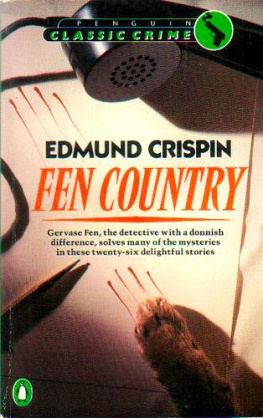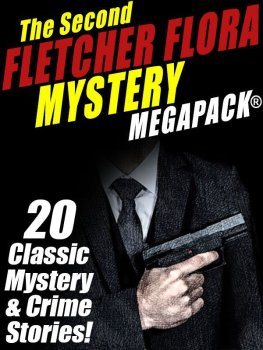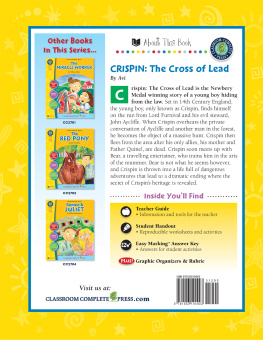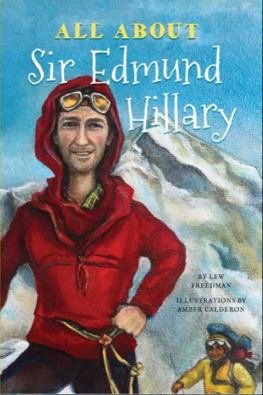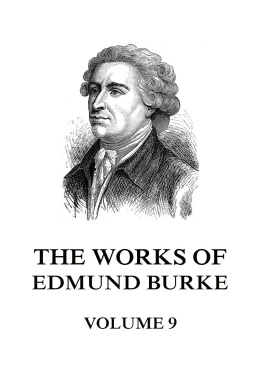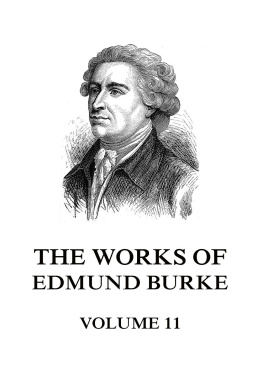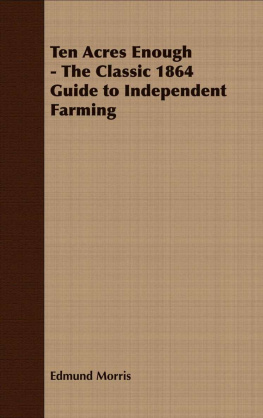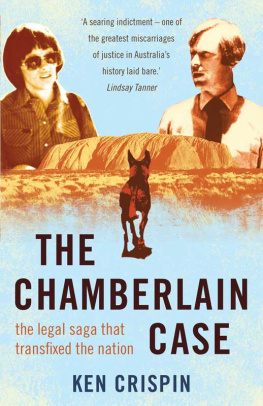Edmund Crispin - Fen Country: 26 Stories (Classic Crime)
Here you can read online Edmund Crispin - Fen Country: 26 Stories (Classic Crime) full text of the book (entire story) in english for free. Download pdf and epub, get meaning, cover and reviews about this ebook. year: 1987, publisher: Penguin (Non-Classics), genre: Detective and thriller. Description of the work, (preface) as well as reviews are available. Best literature library LitArk.com created for fans of good reading and offers a wide selection of genres:
Romance novel
Science fiction
Adventure
Detective
Science
History
Home and family
Prose
Art
Politics
Computer
Non-fiction
Religion
Business
Children
Humor
Choose a favorite category and find really read worthwhile books. Enjoy immersion in the world of imagination, feel the emotions of the characters or learn something new for yourself, make an fascinating discovery.
- Book:Fen Country: 26 Stories (Classic Crime)
- Author:
- Publisher:Penguin (Non-Classics)
- Genre:
- Year:1987
- Rating:5 / 5
- Favourites:Add to favourites
- Your mark:
- 100
- 1
- 2
- 3
- 4
- 5
Fen Country: 26 Stories (Classic Crime): summary, description and annotation
We offer to read an annotation, description, summary or preface (depends on what the author of the book "Fen Country: 26 Stories (Classic Crime)" wrote himself). If you haven't found the necessary information about the book — write in the comments, we will try to find it.
Fen Country: 26 Stories (Classic Crime) — read online for free the complete book (whole text) full work
Below is the text of the book, divided by pages. System saving the place of the last page read, allows you to conveniently read the book "Fen Country: 26 Stories (Classic Crime)" online for free, without having to search again every time where you left off. Put a bookmark, and you can go to the page where you finished reading at any time.
Font size:
Interval:
Bookmark:
Detective Inspector Humbleby, of New Scotland Yard, had been induced by his wife to spend the first week of his summers leave with his wifes sister, and his wifes sisters husband, in Munsingham, and was correspondingly aggrieved.
Munsingham, large and sooty, seemed to him not at all the place for recreation and jollity; moreover, his wifes sisters husband, by name Pollitt, was, like himself, a policeman, being superintendent of the Munsingham City CID, so that inevitably shop would be talked.
On the second day of the visit, however, Humblebys grievances were erased from his mind by the revelation of a serious crisis in his brother-in-laws affairs.
Im going to be retired, said Pollitt abruptly that evening, over tankards in the pub. I havent got round to telling Marion about it yet.
Humbleby was staring at him in amazement. Retired? But youre not nearly at retirement age yet. Why on earth
Because Ive got across the chief constable, said Pollitt. He wanted a case to be considered closedwith perfectly good reason, I must sayand I wanted it kept open. I did keep it open, too, for a week or soagainst his orders. Several of my men were tied up with it when they ought to have been doing other things.
I didnt have the least excuse. I was going on instinct, and the fact that a couple of witnesses were just a bit too consistent in their stories to be true If I did possess definite evidence that the facts in this case arent what they seem, I could put it up to the Watch Committee, and Im pretty sure theyd uphold me. In fact, it wouldnt come to that; the CCd withdraw. But definite evidence is just whats lackingso And Pollitt shrugged resignedly.
Mm, said Humbleby. Just what is this case?
Well, if you dont mind coming along to my office tomorrow morning, and having a look at the dossier
And the basic facts of the case, Humbleby found, were in themselves simple enough.
A month previously, on 27 June, between 10:30 and 11:00 in the morning (the evidence as to these times being positive and irrefragable), a fifty-year-old woman, a Mrs. Whittington, had been murdered in the kitchen of her home on the outskirts of the town.
The weapona heavy iron poker, with which Mrs. Whittington had been struck violently on the back of the headwas found, wiped clean of fingerprints, near by. The back door was open, and it was evident that the murder had followed, or been followed by, a certain amount of pilfering.
Mrs. Whittingtons husband, Leslie Whittington, a man younger and a good deal better-looking than his wife, held the post of chief engineer in the machine-tool manufacturing firm of Heathers and Bardgett, whose factory was some ten minutes walk from the Whittington home.
On the morning in question Whittington had been, as usual on weekdays, in his office at the factory. And the only respect in which, from his point of view, this particular morning had differed from any other was that he had been visited by a reporter, a girl, who worked for the most important of the Munsingham local newspapers. This girl, by name Sheila Pratt, was doing a series on the managers and technicians of Munsingham industry, and Whittington, an important man in his line, represented her current assignment.
She had arrived at Whiningtons office shortly before 10:30 and had left again three-quarters of an hour later. During this period Whittingtons secretary had, on Whittingtons own instructions, told callers, and people who telephoned, that Whittington was out, thereby ensuring that the interview remained undisturbed.
Moreover, there was a fire-escape running down past Whittingtons office window to a little-frequented yard.
As a matter of course, Pollitt had set in train the routine of investigating whether some previous association could have existed between Whittington and Sheila Pratt. Their own assertion was that until the interview they had been complete strangers to one another; but Mrs. Whittington, Pollitt had learned, was not the divorcing sortand the pilfering could easily have been a blind.
Before any results could be obtained from this investigation, however, there had occurred that development which had resulted in the chief constables ordering the file on the case to be closed. Two days after the murder, a notorious young thug called Miller was run over and killed by a lorry on the by-pass road, and in his pocket were found several small pieces of jewelry looted from Mrs. Whittingtons bedroom at the time of her death.
There were witnesses, too, said Pollitt, whod seen Miller hanging about near the Whittington house on the morning Mrs. W was done in. So it was reasonable enough to put the blame on him, and just leave it at that. Of course, Miller could quite well have come along and pinched the stuff after the murder was committed, but the CC thought that in the absence of any evidence against the husband that was stretching it a bit far, and one sees his point of view.
One does, Humbleby agreed. And I must admit, Charlie, that at the moment I still dont quite see yours.
I know, I know, said Pollitt, disgruntled. But I still maintain that those twoWhittington and the Pratt girlhad their story far too pat. I took them both through it several timesseparately, and with all sorts of camouflage stuff about unimportant detailand neither of them ever put a foot wrong. Look. He thrust a sheaf of typescript at Humbleby. Here are their various statements. You have a look at them.
Mm, said Humbleby, nearly an hour later. Yes Look, Charlie, the girls statements all contain stuff about the camera she brought with her to the interview. Tripod three seconds exposureall that. Do you happen to have copies of the pictures she took?
She only kept one, said Pollitt. But Ive got a blow-up print of that, all right. He produced it and handed it across. Its a good picture, isnt it?
It was unusually sharp and clear, showing Whittington at his desk with the desk clock very properly registering ten minutes to eleven.
But theres nothing in it thats any help, that I can see, Pollitt went on. The clothes are right. The
Just a minute, Humbleby interrupted sharply. He had reverted from the photograph to the signed statements of Sheila Pratt, and was frowning in perplexity. Its possible thatI say, Charlie, is this girl an experienced photographera professional, I mean?
Pollitt shook his head. No, shes just a beginner. I understand shes only bought her camera quite recently. But why
And this factory, said Humbleby. Is there a lot of heavy machinery? A lot of noise and vibration?
Yes, there is. What are you getting at?
A couple more questions and youll see it for yourself. Is Whittingtons office somewhere over the factory? Can you feel the vibration there?
You can. But I still dont understand
You will, Charlie. Because heres the really critical query. Were those machines running continuously during the whole of the time Sheila Pratt was in Whittingtons office?
And with that, Pollitt realized. Tripod, he muttered. Then his voice rose. Time-exposure Wait. He grabbed the telephone, asked for a number, asked for a name, put his question, listened, thanked his informant, and rang off. Yes, they were running, he said triumphantly. They were running all right.
And Humbleby chuckled. He flicked the photograph with his forefinger. So that very obviously this beautifully clear picture wasnt taken at the time when Sheila Pratt and Whittington allege it was takenbecause tripod plus time-exposure plus vibration would inevitably have resulted in blurring I imagine they must have faked it up one evening, after the factory had stopped work; and the girl was too inexperienced in photography to realize the difference that that would make in the finished product
Font size:
Interval:
Bookmark:
Similar books «Fen Country: 26 Stories (Classic Crime)»
Look at similar books to Fen Country: 26 Stories (Classic Crime). We have selected literature similar in name and meaning in the hope of providing readers with more options to find new, interesting, not yet read works.
Discussion, reviews of the book Fen Country: 26 Stories (Classic Crime) and just readers' own opinions. Leave your comments, write what you think about the work, its meaning or the main characters. Specify what exactly you liked and what you didn't like, and why you think so.

